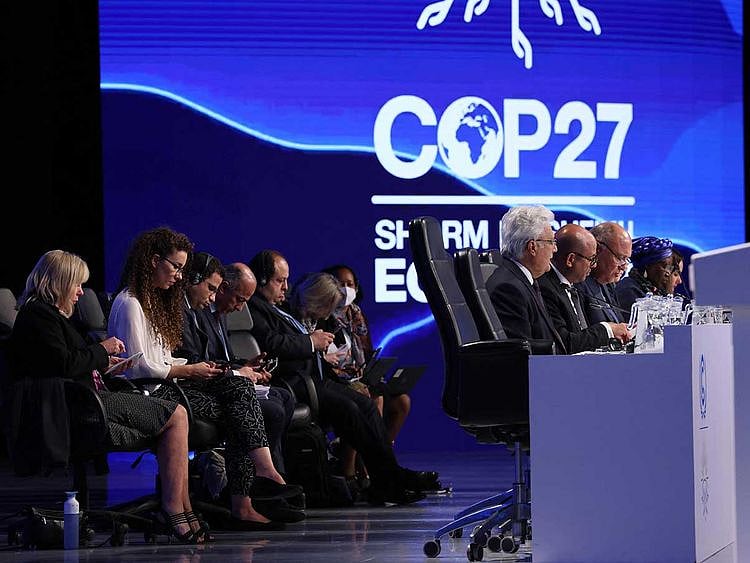Main points of COP27 declaration, ‘loss and damage’ deal
Declaration outlines commitments on greenhouse gas emissions, global warming

Sharm Al Sheikh: The United Nations COP27 summit in Egypt wrapped up Sunday with delegates adopting two main texts: a final declaration and a landmark deal on climate “loss and damage”.
Here are the main points from the two documents, outlining commitments on greenhouse gas emissions, global warming and energy, as well as funding to help vulnerable countries cope with devastating impacts of climate change.
Final declaration
Emissions cuts:
COP27 “emphasises the urgent need for immediate, deep, rapid and sustained reductions in global greenhouse gas emissions”, which contribute to global warming.
UN Secretary-General Antonio Guterres deplored a reluctance to “drastically reduce emissions now”.
Warming targets:
The final declaration “reaffirms the Paris Agreement temperature goal of holding the increase in the global average temperature to well below two degrees Celsius above pre-industrial levels and pursuing efforts to limit the temperature increase to 1.5C”.
It also “reiterates that the impacts of climate change will be much lower at the temperature increase of 1.5C compared with 2C, and resolves to pursue further efforts to limit the temperature increase to 1.5C”.
Energy:
COP27 calls on parties “to accelerate... efforts towards the phasedown of unabated coal power and phase-out of inefficient fossil fuel subsidies”.
Several countries sought to include a mention of reducing the use of oil and natural gas rather than just subsidies.
“Unabated” refers to emissions from coal-fired power plants that are not syphoned off to prevent them from entering the atmosphere.
The declaration also calls for accelerating “clean and just transitions to renewable energy”.
‘Loss and damage’
Parties “decide to establish new funding arrangements for assisting developing countries... in responding to loss and damage, including... by providing and assisting in mobilising new and additional resources”.
They also “decide to establish a fund for responding to loss and damage”.
“A transitional committee” will lay out regulations for the new funding arrangements and identify the “sources of funding”.
The committee will present its recommendations “for consideration and adoption” at the COP28 summit next year in Dubai.
Sign up for the Daily Briefing
Get the latest news and updates straight to your inbox
Network Links
GN StoreDownload our app
© Al Nisr Publishing LLC 2026. All rights reserved.